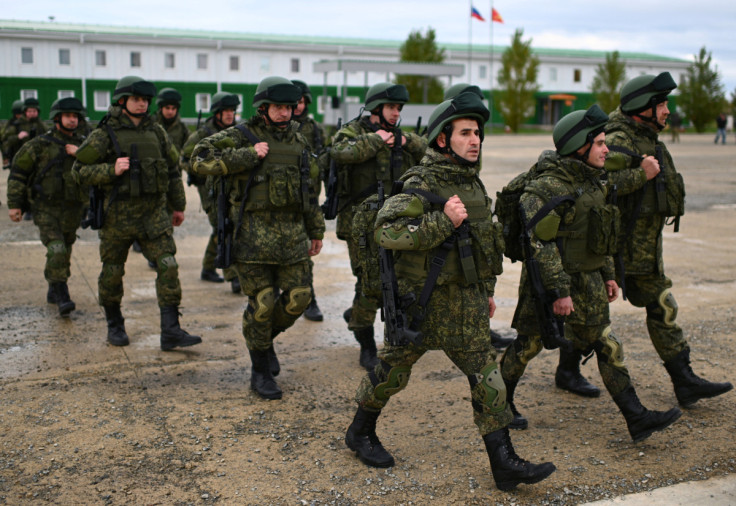Russian Spy Network Smuggled 'Highly Sensitive' EU Tech To Boost Putin's Ukraine Attacks: FT

KEY POINTS
- The group reportedly obtained machine tools from Germany and Finland
- A separate Russian company also procured $900,000 worth of materials from EU companies
- There was no evidence showing the EU companies were aware they were dealing with groups linked to Russian intelligence
A Russian spy network has smuggled "highly sensitive" technology from the European Union to help boost President Vladimir Putin's war in Ukraine, according to a report.
The spy group, known as the "Serniya network," was set up to procure goods from microchips to ammunition. The group, however, successfully infiltrated EU companies to obtain machine tools from Germany and Finland, as first reported by the Financial Times, which conducted an investigation.
The outlet noted that they did not find evidence suggesting the EU companies were aware they were engaging in deals with companies and groups with links to Russian intelligence and Moscow's military.
The "Serniya network," owned by a Russian national named Alexey Zibyrov, was one of the several groups accused by the U.S. Department of Justice of illegally procuring sensitive information for the Russian military. The United States also said that the group is working on behalf of the Russian Federal Security Service (FSB), specifically for the agency's Directorate for Scientific and Technological Intelligence.
The information is then sold to a range of Russian clients, including the Kremlin's Foreign Intelligence Service (SVR), state-owned defense conglomerate Rostec, the Russian Ministry of Defense and state-affiliated atomic energy company Rosatom.
In addition to the spy network, the outlet's investigation also uncovered that Russian company Trading House Treydtuls bought at least $900,000 worth of materials from EU companies. The materials purchased include microchips and items used for industrial manufacturing.
Records obtained by the outlet also found that Moscow-based Robin Trade had moved at least $12.2 million worth of goods into Russia up until April 2022, before Europe and the West imposed economic sanctions on Moscow and Russian companies due to the invasion of Ukraine.
Both Trading House Treydtuls and Robin Trade are part of the Serniya network and are owned by Zibyrov.
The U.S. first put sanctions on a group of networks and companies it said were helping Russia evade controls on exports in March 2022. Apart from Serniya Network, the U.S. also extended the sanctions to cover defense procurement firms located in the United Kingdom, Spain, Finland, Singapore and France.

© Copyright IBTimes 2024. All rights reserved.






















